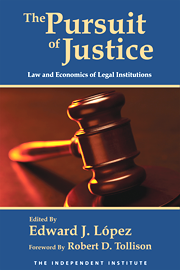As people across the nation and indeed across the globe continue to struggle financially due to inflation, lingering coronavirus outbreaks and the effects of the Russian war on Ukraine, we could all use more economic freedom to fill our pocketbooks and improve our quality of life.
That is the lesson from the Fraser Institute’s annual Economic Freedom of North America and Economic Freedom of the World reports.
Drawing upon both its own results and a wealth of other economic research, the Economic Freedom of North America report concluded that “economic freedom is positively correlated with per-capita income, economic growth, greater life expectancy, lower child mortality, the development of democratic institutions, civil and political freedoms and other desirable social and economic outcomes.”
Economic freedom had generally increased slightly in recent years until the COVID-19 pandemic and particularly government policy reactions to it reversed this trend.
“The policy responses to the coronavirus pandemic, including massive increases in government spending; monetary expansion; travel restrictions; regulatory mandates on businesses related to masks, hours and capacity; and outright lockdowns undoubtedly contributed to an erosion of economic freedom for most people,” the report found. Years later, Americans are still trying to recover from both the disease and the supposed cures foisted upon the public by governments at the federal, state and local levels.
Among U.S. states, Florida ranked the most economically free, followed by New Hampshire, South Dakota and a tie between Texas and Tennessee. California ranked 49th, besting only New York. Among the subcategories, the Golden State ranked 49th in government spending, 45th in taxes and 38th in labor market freedom. Rounding out the bottom five were Hawaii, Vermont and Oregon.
These findings are hardly news for California. Numerous surveys and reports analyzing a variety of economic indicators have consistently placed California at or near the very bottom of all states in terms of economic freedom and business climate. The state ranked 48th in the Tax Foundation’s 2023 State Business Tax Climate Index, has been dubbed one of the nation’s biggest “Judicial Hellholes” by the American Tort Reform Foundation for encouraging frivolous and abusive lawsuits, received a grade of “F” in Thumbtack’s most recent Small Business Friendliness Survey and placed dead last—again—in Chief Executive Magazine’s annual Best and Worst States for Business survey of CEOs across the country (Texas, Florida and Tennessee dominate the top of the rankings—stop me if this sounds familiar).
It is no wonder, then, that “California has been a net exporter of businesses for at least three decades,” according to Claremont McKenna College’s Kosmont-Rose Institute 2022 Cost of Doing Business Survey. The study found that, from 1990 to 2019, 44 percent more businesses left California than moved there from other states, resulting in a net loss of nearly 20,000 businesses.
Whether it is high taxes; excessive environmental regulations (which are often abused for non-environmental reasons); restrictive zoning, affordable housing mandates, rent control and other policies that limit homebuilding and drive up the cost of housing; a high minimum wage ($15.50 an hour, as of Jan. 1), which benefits a small portion of workers but only at the expense of reduced hours and fewer jobs for many others (not to mention higher prices for consumers); or arbitrary and unnecessary occupational licensing laws that reduce entrepreneurship and jobs, California has consistently enacted policies that limit economic freedom and opportunity.
When people are free to keep more of their hard-earned money, bargain for their own wages and other working conditions, start a business or work in the occupation of their choosing without having to get permission from the government, prosperity and economic growth inevitably follow.
The historical evidence of the virtues of economic freedom—and the vices of government planning and restrictions on these freedoms—is overwhelming.
As the Economic Freedom of North America report asserts, “In some ways, it is surprising the debate still rages because the evidence and theory favoring economic freedom match intuition: It makes sense that the drive and ingenuity of individuals will produce better outcomes through the mechanism of mutually beneficial exchange than the designs of a small coterie of government planners, who can hardly have knowledge of everyone’s values and who, being human, are likely to consider first their own well-being and that of the constituents they must please when making decisions for all of us.”
Regrettably, it is a lesson that still has not been learned in California and many other states and nations.









